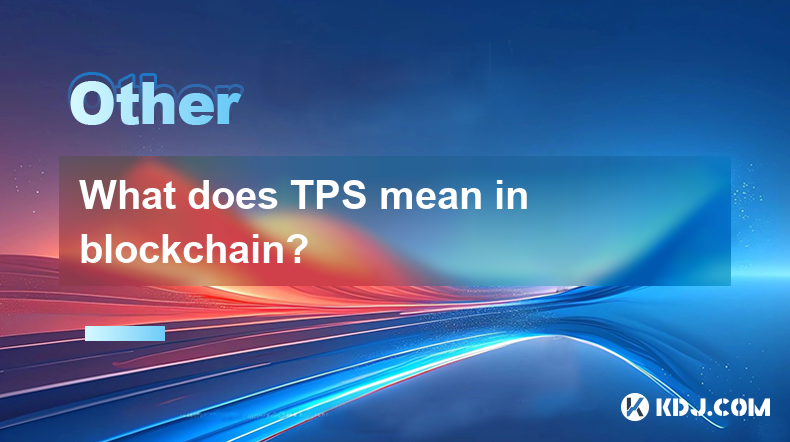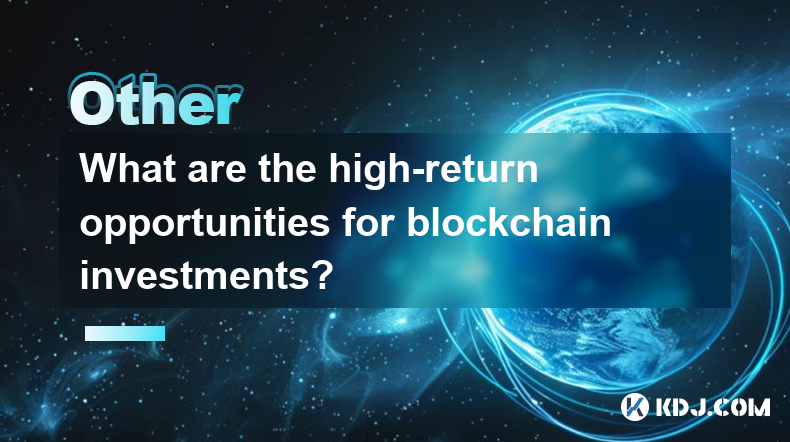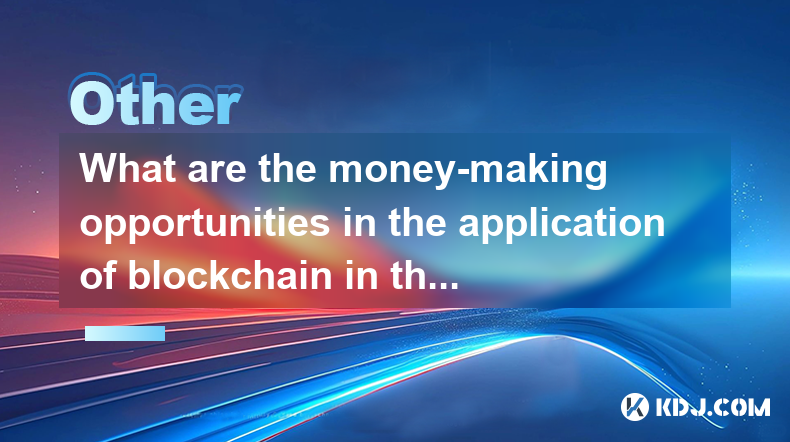-
 Bitcoin
Bitcoin $83,384.0103
-0.52% -
 Ethereum
Ethereum $1,808.8880
-0.27% -
 Tether USDt
Tether USDt $0.9996
-0.01% -
 XRP
XRP $2.1285
0.17% -
 BNB
BNB $590.6650
-1.02% -
 Solana
Solana $119.8001
-1.16% -
 USDC
USDC $1.0000
-0.01% -
 Dogecoin
Dogecoin $0.1672
-1.52% -
 Cardano
Cardano $0.6450
-2.14% -
 TRON
TRON $0.2358
-0.73% -
 UNUS SED LEO
UNUS SED LEO $9.1542
-0.44% -
 Chainlink
Chainlink $12.7548
-1.04% -
 Toncoin
Toncoin $3.2310
-2.48% -
 Stellar
Stellar $0.2517
-2.57% -
 Avalanche
Avalanche $17.3882
-4.28% -
 Shiba Inu
Shiba Inu $0.0...01223
-0.63% -
 Sui
Sui $2.1802
-2.73% -
 Hedera
Hedera $0.1601
-2.08% -
 Litecoin
Litecoin $82.2437
-2.91% -
 Polkadot
Polkadot $3.9303
-2.19% -
 MANTRA
MANTRA $6.2192
-1.01% -
 Bitcoin Cash
Bitcoin Cash $295.8200
-1.72% -
 Dai
Dai $1.0000
0.00% -
 Bitget Token
Bitget Token $4.4500
-1.78% -
 Ethena USDe
Ethena USDe $0.9991
0.00% -
 Pi
Pi $0.6522
50.32% -
 Monero
Monero $214.4466
-1.61% -
 Hyperliquid
Hyperliquid $11.5830
-3.12% -
 Uniswap
Uniswap $5.8275
-1.00% -
 OKB
OKB $54.4412
7.17%
What does TPS mean in blockchain?
Blockchain's TPS (Transactions Per Second) measures processing capacity, varying widely across networks. Higher TPS generally means better performance, but often compromises decentralization or security; finding the right balance is key.
Mar 16, 2025 at 03:20 pm

Key Points:
- TPS stands for Transactions Per Second, a crucial metric measuring a blockchain's processing capacity.
- Different blockchains have vastly different TPS capabilities, impacting their scalability and suitability for various applications.
- Factors influencing TPS include block size, block time, and consensus mechanism.
- High TPS is generally desirable but comes with trade-offs, often involving decentralization or security.
- Understanding TPS is essential for evaluating a blockchain's potential and limitations.
What Does TPS Mean in Blockchain?
Transactions Per Second (TPS) is a critical metric in the cryptocurrency world that quantifies the number of transactions a blockchain network can process within a single second. It's a key indicator of a blockchain's scalability and its ability to handle a large volume of transactions efficiently. A higher TPS generally suggests better performance and the potential for wider adoption. However, it's crucial to consider this metric in context with other factors.
How is TPS Calculated?
Calculating TPS isn't a straightforward process, as it depends on various factors and can fluctuate significantly. It's not simply a fixed number. Generally, it involves observing the number of confirmed transactions processed over a specific period, usually a second, and then averaging those results over a longer timeframe to account for variations. This requires monitoring the blockchain's activity and analyzing the data. Different methods and tools exist for this purpose.
Factors Affecting Blockchain TPS
Several factors influence a blockchain's TPS. Block size, for example, directly impacts the number of transactions that can fit within a single block. Larger blocks accommodate more transactions, increasing the TPS. Block time, the interval between creating consecutive blocks, also plays a crucial role. Shorter block times lead to higher TPS.
The consensus mechanism employed by the blockchain is another significant factor. Proof-of-Work (PoW) blockchains, like Bitcoin, generally have lower TPS than Proof-of-Stake (PoS) blockchains, like Cardano or Solana. This difference stems from the inherent differences in transaction validation processes. PoW requires extensive computational power, slowing down transaction processing. PoS mechanisms are often more efficient.
Different Blockchains and Their TPS
Different blockchains boast vastly different TPS capabilities. Bitcoin, known for its security and decentralization, has a relatively low TPS, typically in the single digits. Ethereum, while undergoing upgrades to enhance its scalability, still faces limitations in TPS compared to newer platforms. In contrast, some newer blockchains, built with scalability in mind, boast significantly higher TPS figures. Solana, for example, has claimed exceptionally high TPS, though these claims are often debated within the community.
The variation in TPS across different blockchains reflects the design choices made during their development. Some prioritize security and decentralization over speed, while others prioritize speed and scalability. The optimal TPS depends on the specific use case of the blockchain. A blockchain designed for microtransactions might require a far higher TPS than one primarily used for storing value.
The Trade-offs Involved in High TPS
While a high TPS is generally desirable, it often comes with trade-offs. Increasing TPS might necessitate compromises on decentralization or security. For instance, to achieve very high TPS, a blockchain might rely on centralized components, potentially reducing its resistance to censorship or single points of failure. Similarly, speeding up transaction processing could sometimes compromise the security and integrity of the network.
It's crucial to understand that the pursuit of high TPS should not come at the expense of other essential aspects of a robust blockchain. A balance must be struck between speed, security, and decentralization. The ideal TPS varies depending on the specific application and priorities of the blockchain.
TPS and Scalability Solutions
The pursuit of higher TPS has led to the development of various scalability solutions within the blockchain space. Layer-2 scaling solutions, such as Lightning Network for Bitcoin and various rollup technologies for Ethereum, aim to enhance transaction throughput without compromising the underlying blockchain's security or decentralization. These solutions essentially offload some of the transaction processing to separate networks, improving overall efficiency.
Sharding, another common scalability technique, involves partitioning the blockchain into smaller, more manageable fragments called shards. Each shard can process transactions concurrently, leading to a significant increase in TPS. This method aims to distribute the processing load, mitigating the scalability limitations of a single, monolithic blockchain.
Common Questions and Answers:
Q: Is higher TPS always better?
A: Not necessarily. Higher TPS often comes with trade-offs, potentially sacrificing decentralization or security. The optimal TPS depends on the specific use case and priorities of the blockchain.
Q: How does TPS relate to transaction fees?
A: High demand and limited TPS can lead to increased transaction fees as users compete for processing space on the blockchain.
Q: Can TPS be improved on existing blockchains?
A: Yes, through various scalability solutions like layer-2 scaling and sharding, existing blockchains can improve their TPS. However, this often involves complex technological upgrades.
Q: What are some examples of blockchains with high TPS?
A: Solana, Cardano, and some other newer platforms often claim very high TPS, though these numbers are sometimes contested. It's important to critically evaluate such claims.
Q: How can I find the current TPS of a blockchain?
A: Various blockchain explorers and monitoring websites provide real-time data on transaction throughput for many different blockchains.
Disclaimer:info@kdj.com
The information provided is not trading advice. kdj.com does not assume any responsibility for any investments made based on the information provided in this article. Cryptocurrencies are highly volatile and it is highly recommended that you invest with caution after thorough research!
If you believe that the content used on this website infringes your copyright, please contact us immediately (info@kdj.com) and we will delete it promptly.
- Coinbase CEO Brian Armstrong Calls for Stablecoin Legislation to Enable On-Chain Interest
- 2025-04-06 12:10:12
- Trump's New Secondary Tariff Strategy Lacks Finesse, Involves Millions
- 2025-04-06 12:10:12
- Tether Expands Bitcoin Holdings with New Purchase of 8,888 BTC
- 2025-04-06 12:05:12
- Tether Holdings Ltd. (USDT) Buys the Dip, Acquiring 8,888 BTC
- 2025-04-06 12:05:12
- Tether Expands Bitcoin Holdings With $735M Purchase of 8,888 BTC
- 2025-04-06 12:00:12
- Solaxy (SOLX) Leads the Charge as Inflows Return to Crypto Investment Products
- 2025-04-06 12:00:12
Related knowledge

Is the ranking of Chinese blockchain apps real and reliable?
Apr 04,2025 at 09:01pm
The ranking of Chinese blockchain apps has become a topic of interest for many in the cryptocurrency community, as it provides insights into the popularity and adoption of blockchain technology within China. However, the reliability and authenticity of these rankings are often questioned. This article aims to delve into the factors that influence these ...

What are the future development trends of blockchain game development?
Apr 03,2025 at 05:00am
Blockchain technology has revolutionized various industries, and gaming is no exception. As we look to the future, several trends are set to shape the development of blockchain games. These trends not only promise to enhance the gaming experience but also to integrate blockchain technology more seamlessly into the gaming ecosystem. Let's explore these t...

What are the high-return opportunities for blockchain investments?
Apr 05,2025 at 02:35pm
Blockchain technology has revolutionized the financial world, offering numerous high-return investment opportunities. These opportunities span various sectors within the cryptocurrency ecosystem, including cryptocurrencies, decentralized finance (DeFi), non-fungible tokens (NFTs), and blockchain startups. Each of these areas presents unique risks and re...

What are the maintenance costs of blockchain system development?
Apr 03,2025 at 06:07pm
The maintenance costs of blockchain system development are multifaceted and depend on various factors. These costs can include technical maintenance, security updates, infrastructure expenses, and personnel costs. Understanding these elements is crucial for anyone planning to develop or maintain a blockchain system. Technical MaintenanceTechnical mainte...

What are the money-making models of blockchain games?
Apr 04,2025 at 02:00pm
Blockchain games have emerged as a revolutionary way for players to earn real money while enjoying their favorite pastime. These games leverage the power of blockchain technology to create unique money-making models that benefit both the players and the developers. In this article, we will explore the various money-making models of blockchain games and ...

What are the money-making opportunities in the application of blockchain in the field of Internet of Things?
Apr 05,2025 at 10:35pm
The integration of blockchain technology with the Internet of Things (IoT) presents numerous money-making opportunities. Blockchain, with its decentralized and secure nature, can revolutionize how IoT devices interact, manage data, and conduct transactions. This article will explore various avenues where entrepreneurs, developers, and investors can capi...

Is the ranking of Chinese blockchain apps real and reliable?
Apr 04,2025 at 09:01pm
The ranking of Chinese blockchain apps has become a topic of interest for many in the cryptocurrency community, as it provides insights into the popularity and adoption of blockchain technology within China. However, the reliability and authenticity of these rankings are often questioned. This article aims to delve into the factors that influence these ...

What are the future development trends of blockchain game development?
Apr 03,2025 at 05:00am
Blockchain technology has revolutionized various industries, and gaming is no exception. As we look to the future, several trends are set to shape the development of blockchain games. These trends not only promise to enhance the gaming experience but also to integrate blockchain technology more seamlessly into the gaming ecosystem. Let's explore these t...

What are the high-return opportunities for blockchain investments?
Apr 05,2025 at 02:35pm
Blockchain technology has revolutionized the financial world, offering numerous high-return investment opportunities. These opportunities span various sectors within the cryptocurrency ecosystem, including cryptocurrencies, decentralized finance (DeFi), non-fungible tokens (NFTs), and blockchain startups. Each of these areas presents unique risks and re...

What are the maintenance costs of blockchain system development?
Apr 03,2025 at 06:07pm
The maintenance costs of blockchain system development are multifaceted and depend on various factors. These costs can include technical maintenance, security updates, infrastructure expenses, and personnel costs. Understanding these elements is crucial for anyone planning to develop or maintain a blockchain system. Technical MaintenanceTechnical mainte...

What are the money-making models of blockchain games?
Apr 04,2025 at 02:00pm
Blockchain games have emerged as a revolutionary way for players to earn real money while enjoying their favorite pastime. These games leverage the power of blockchain technology to create unique money-making models that benefit both the players and the developers. In this article, we will explore the various money-making models of blockchain games and ...

What are the money-making opportunities in the application of blockchain in the field of Internet of Things?
Apr 05,2025 at 10:35pm
The integration of blockchain technology with the Internet of Things (IoT) presents numerous money-making opportunities. Blockchain, with its decentralized and secure nature, can revolutionize how IoT devices interact, manage data, and conduct transactions. This article will explore various avenues where entrepreneurs, developers, and investors can capi...
See all articles





















































































